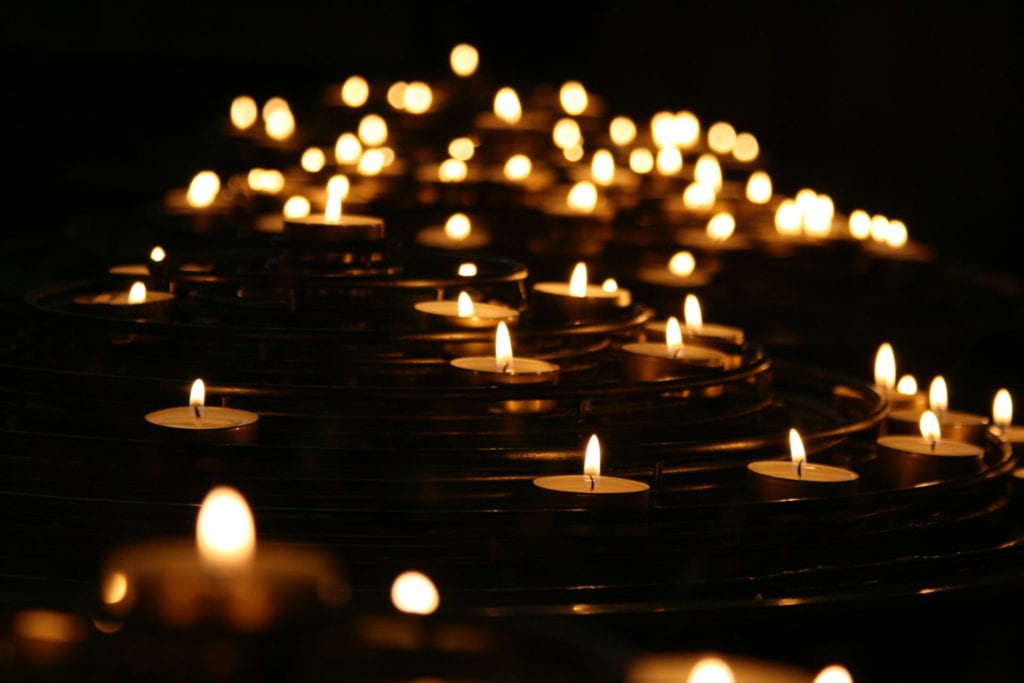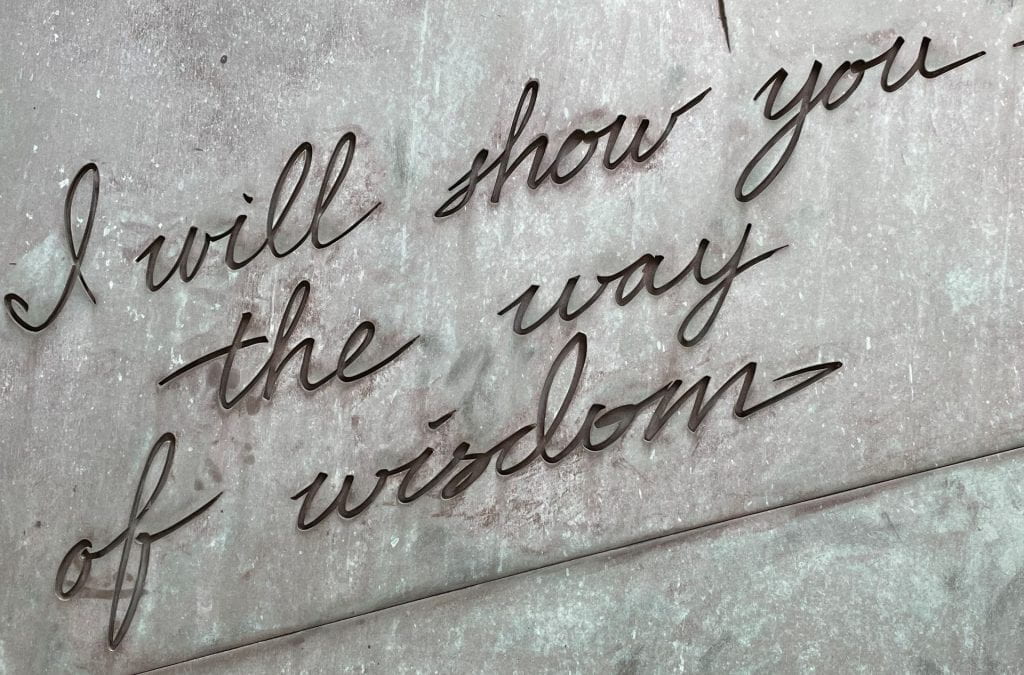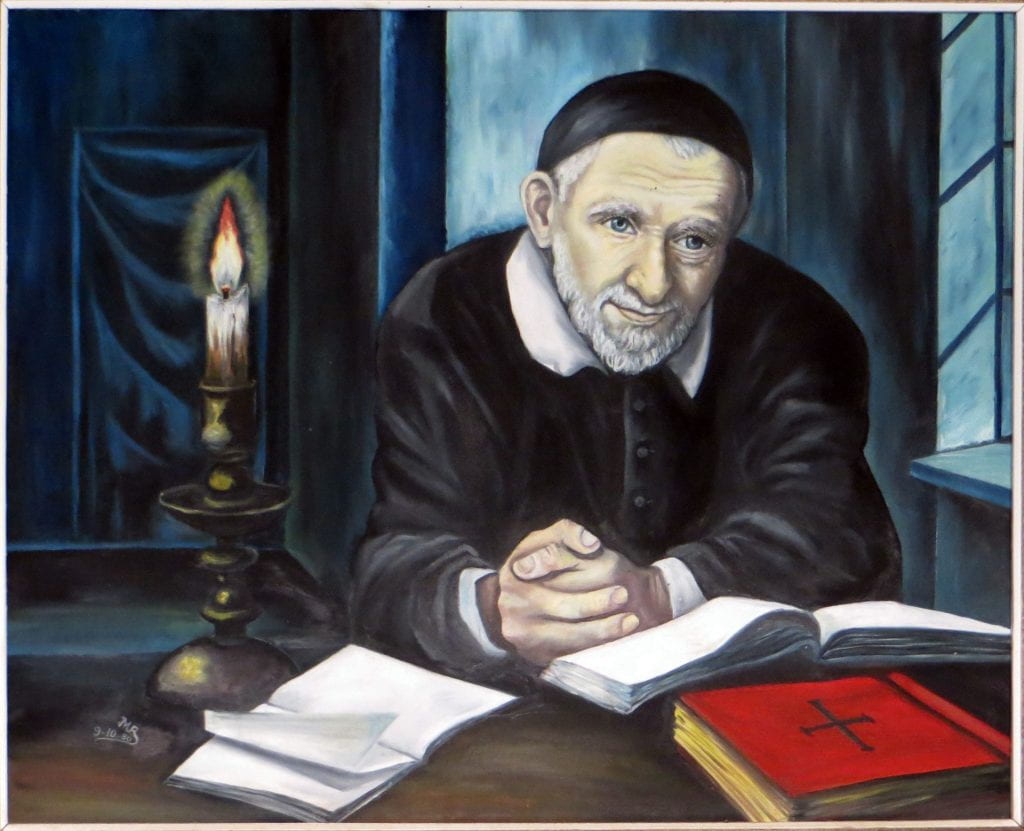In honor of Saint Louise de Marillac’s Feast Day on May 9th, the Division of Mission and Ministry invites the DePaul community to celebrate Louise Week from May 6th-12th.
As we celebrate DePaul’s 125th anniversary and embrace a time of dreaming, designing, and innovating, Saint Louise provides us a unique example of Vincentian leadership. Her life was a demonstration of love in action through her innovation and entrepreneurial spirit. She along with her female contemporaries provided the shoulders that bore the weight of crisis that they experienced in a country racked by war, entrenched in political upheaval, overwhelmed by the plague, and struck by hunger. In community, these women collaborated across difference, uplifted the gifts in those they served and created new pathways forward to respond to those on the margins. Her story reminds us of the possibility of transforming systems and lives.
We kick off Louise Week 2023 with Vincentian Service Day on May 6th with a week of celebration to follow. Just as Saint Louise was sustained by the generosity and goodness of those around her, may we too take the time to pause, uplift, and celebrate with gratitude those who sustain our journey and inspire us.
Curious to learn more about Louise’s personal journey? Check out this virtual six-day pilgrimage created last year that follows her footsteps across Paris.
Join us!
Vincentian Service Day
Date: Saturday, May 6 | Location: LPC – Sullivan Athletic Center | Time: 7:30
Vincentian Service Day (VSD) is an annual tradition at DePaul. Started during the 1998-1999 school year as part of DePaul’s Centennial celebration, over 1000 DePaul students, staff, faculty and alumni participate in a day of service with 50+ community partners in the Chicagoland area and cities around the country.
Register for Vincentian Service Day
Relax with Louise Holistic Care Event
Date: Monday, May 8 1:00 – 4:00pm | Location: Cultural Centers, O’Connell Building 300
Join the Cultural Centers and Meet Me at the Mission student leaders for an afternoon of holistic care. Come take some time to relax and learn about Louise’s approach to caring for others and her community. Each Cultural Center will offer a holistic care practice that is distinct to different identities and cultures.
DeHub Link: https://cglink.me/2cC/r379548
Louise Feast Day Mass & Lunch
Date: Tuesday, May 9 | Location: Loop 11th Floor Terrace, LPC Student Center 104, | Mass Time: 12:00 pm, Lunch Time: 12:30 pm | Lincoln Park & Loop Campuses
Celebrate the Feast Day with a celebratory lunch at 12:45 pm. Everyone is welcome!
- In the Loop, join us on the 11th floor terrace in the DePaul Center. RSVP here for the Loop lunch.
- For the lunch in Lincoln Park, no need to register, just come to Catholic Campus Ministry (Student Center – Suite 104).
Dinner with the Daughters
Date: Tuesday, May 9, 6:00 – 7:00 pm | Location: Corcoran Hall, 910 W. Belden Ave.
Have you ever met a Daughter of Charity? Join Meet Me at the Mission and Residence Education for dinner and conversation to celebrate the Feast of St. Lousie de Marillac. Don’t miss this opportunity to hear these amazing women share their story of how they continue to live the legacy of St. Louise de Marillac today.
DeHub Link: https://cglink.me/2cC/r379470
Louise’s Living Legacy: Creating Community in the Business World
Date: Wednesday, May 10 1:00 – 2:00pm | Location: Loop, DePaul Center 11013
Join Meet Me at the Mission and Business student leaders who went on the Vincentian Heritage Tour to have lunch, learn about the legacy of St. Louise de Marillac, and dialogue about how to live out Vincentian values in the professional world.
DeHub Link: https://cglink.me/2cC/r379535
Catholic Community Night: Walking in the Footsteps of Louise
Date: May 10, 5:00 – 6:00 pm | Location: LPC Student Center Suite 104
Join CCM’s Catholic Community Night and Meet Me at the Mission for a meaningful conversation with students who went on the Vincentian Heritage Tour and walked in the footsteps of St. Louise de Marillac.
Cafecito con Tepeyac
May 11, 3:00 – 4:00 | Location: Latinx Cultural Center O’Connell 360
Join us for a conversation about women’s leadership, the legacy of St. Louise de Marillac and community with Latinx students. Cafecito and a snack will be provided!
DeHub Link: Cafecito Con Tepeyac- Louise Week – Tepeyac (depaul.edu)
IRL2 Lab Louise Plushie Creation
Date: May 12, 3pm | Location: IRL 2 Lab SAC 236
Join Meet Me at the Mission and IRL student leaders who went on the Vincentian Heritage Tour for a fun event making Louise plushies! Tap into your creativity and learn about St. Louise de Marillac’s innovation.
DeHub Link: https://cglink.me/2cC/r379471







